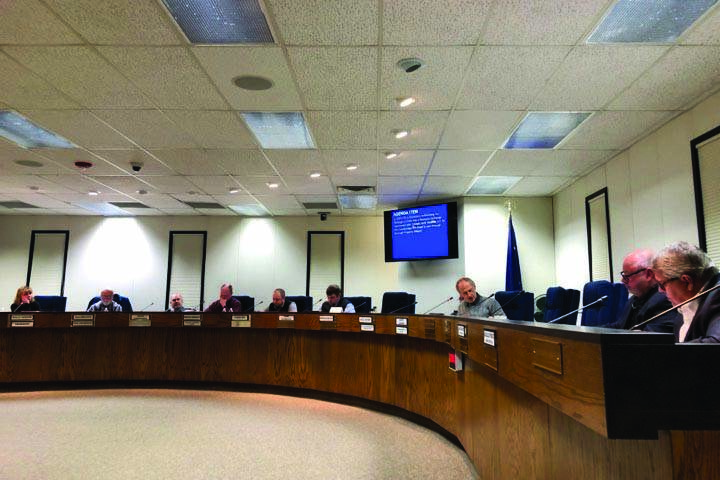An ordinance changing candidate qualifications for local elections passed unanimously at Tuesday’s Kenai Peninsula Borough Assembly meeting.
The measure requires that candidates for local office live in the borough for one year prior to running for local office. The residency extension changes the current requirement of 180 days residency to one year.
The ordinance also provides clarification on what the borough can do if someone’s residency is challenged.
“In existing code, there is no vehicle or apparatus for somebody to challenge a person’s residency — a candidate’s residency,” assembly member Brent Johnson, who sponsored the measure, said at Tuesday’s assembly meeting. “So, it’s a very clumsy thing to handle without that. If you look in the ordinance you will find that in section two it begins to talk about how a challenge would begin to take place.”
Assembly member Tyson Cox said co-sponsored the ordinance because he wanted the borough administration to have a clearer path when dealing with those challenges.
“The reason I asked to be on this ordinance is because it gives clarity to our clerk and to the legal department,” Cox said Tuesday. “If there were anything to come up, there’s very clear steps to take now to go about that process.”
The vote on the ordinance was postponed at the last assembly meeting, Feb. 4, to allow service area boards and the school board to weigh in.
Extending the requirement to a year aligns with other boroughs and municipalities across the state, such as the Matanuska-Susitna Borough, Fairbanks North Star Borough, Haines, Petersburg, Kodiak, Ketchikan and Homer, Johnson said in a Dec. 26 memo to the assembly.
In the memo, Johnson said the code’s “deficiencies” were brought to his attention during the 2019 assembly election.
A longer residency requirement serves important local interests, Johnson said in his memo, and will “afford greater voter knowledge of candidates and greater candidate knowledge of the needs of the constituency while also protecting constitutional rights of both the voter and the candidate.”
“Candidates for local office should be familiar with the issues and challenges facing their constituents and should not be able to move to an area right before an election for personal gain,” Johnson said in the memo.
Johnson’s ordinance also seeks to provide a clearer understanding of what a resident is, with an amendment that mirrors state law, defining a “residence as actual physical presence and habitation at a specific location in the borough.”
This ordinance will impact the elections of school board, service areas, borough assembly and borough mayor.

